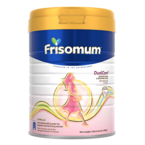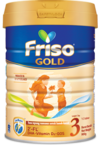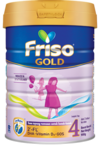8 Pre-Labour To-Do Items You’d Want to Check off
Before your child arrives, use this chance to pamper yourself and make.... read more

Morning sickness, a common experience for many pregnant women, refers to nausea and vomiting that often occurs during the first trimester.1 While the literal meaning of the phrase "morning sickness" might suggest it only happens in the morning, it can strike at any time of day.1 Although it may seem like morning sickness is simply an inconvenient side effect of being pregnant, there may actually be some meaning behind why pregnancy causes the condition. Studies have suggested that it might be a protective mechanism for pregnant women and their developing foetuses. The theory is that nausea and vomiting help expel harmful toxins and microorganisms that could potentially damage the foetus during a critical stage of organ development.2,3,4 This evolutionary advantage explains why morning sickness is so prevalent in humans but not other mammals.
Morning sickness can be truly challenging to navigate and may have you wondering how to deal with it without medication, but fret not as there are some natural yet effective treatments and ways that you can turn to in order to deal with the condition! Here are some useful tips you can use at home to help manage your morning sickness:
Spicy foods as well as strong odours like perfumes, chemical cleaners and smoke are common nausea triggers. Thanks to the surging hormones of pregnancy, certain odours might make you nauseous, but probably did not have that effect before you were pregnant. Try to steer clear of strong or offensive smells.5,6
Pregnancy can be uncomfortable and there are many unknown factors that could be affecting you and your child. When heading to your next appointment, make sure to: Write down any symptoms you're experiencing. Include EVERYTHING, even if you aren’t sure if they are related to your morning sickness or pregnancy. This can help your doctor to identify if your morning sickness is within normal parameters or requires medical intervention or treatment.
While medications exist for severe cases of morning sickness, following a well-balanced diet rich in specific nutrients can often be a first-line treatment for managing symptoms like nausea and fatigue. To tame that queasy feeling, try incorporating some simple changes to your diet. First, focus on lean protein and complex carbohydrates, like nuts, eggs and whole grains.5,6 These will keep you feeling fuller for longer and may also help ease your stomach woes. Bland options like crackers and easily digestible fruits and vegetables are great to have on hand for quick snacks.6 For a complete list of pregnancy-friendly fruits, check out our article “Fruits to Eat During Pregnancy - What's Good and What to Avoid”. Vitamin B6 will also be a great addition to your diet as it can help combat nausea.7,8,9 Salmon, avocados, bananas, and leafy greens are all excellent sources of vitamin B6, so try to incorporate them into your daily meals. Finally, ditch the greasy and spicy foods as they can actually make nausea and heartburn worse.9,10
Instead of eating three big meals, try adjusting to smaller frequent meals throughout the day instead.5 Experts recommend six snack-type meals spread out over the day. So, keep healthy snacks around the house that you can nibble on! Another trick is to eat and drink at different times so you won’t fill up too quickly and your body can properly absorb the nutrients it needs.9,10
Pregnant women should drink at least eight (8) glasses of liquid daily, especially if you are feeling nauseous. Dehydration can worsen morning sickness, so staying hydrated is key.5,6 To further combat nausea, consider consulting your doctor about incorporating herbal teas like ginger or peppermint, as they may also help soothe nausea.6,7,8,9,10
Pregnancy is a time when good nutrition becomes even more crucial. After all, you're nourishing both yourself and your developing child! To ensure you're getting all the essential nutrients, continue eating a balanced and healthy diet. For additional support, consider supplementing with a pregnancy formula like Friso® Gold Mum. This formula is specifically designed to support the increased nutritional needs of mothers throughout their pregnancy. Wondering how much to eat or what constitutes "eating well"? Check out our Pregnancy Q&A: Eating Enough vs Eating Well for some helpful guidance.
Friso® Gold Mum, our preferred prenatal milk for mothers, retains the natural nutrients of the milk to support you through your pregnancy journey such as:
Vitamin D - Necessary for the absorption and utilisation of calcium and phosphorus.11
Calcium - Helps in the normal growth and development of bones and teeth.12
Vitamin B12 - Needed for red blood cell production and the healthy functioning of the nervous system.13
Folic Acid - Folic acid is essential for growth and division of cells. Folate plays a role in the formation of red blood cells. Folate helps to maintain the growth and development of the foetus.14
Iodine - Essential for the formation of thyroid hormones, which supports brain development.15
Low glycaemic index - The glycaemic index (GI) is a rating system for foods containing carbohydrates.16 It shows how quickly food affects your blood sugar (glucose) level when eaten on its own. The low glycaemic index (GI) could help the mother avoid being overweight during pregnancy, thus avoiding further complications such as gestational diabetes.17
Friso® Gold Mum consists of essential nutrients which are formulated with DualCare+™, to support mothers’ and their children's daily needs. Read more on what mothers should drink during pregnancy.
Morning sickness might be the most talked-about pregnancy discomfort, but it's certainly not the only one! From fatigue to backaches, many other symptoms can arise during pregnancy. If you're experiencing additional discomforts beyond nausea, check out our guide "How to Reduce Pregnancy Complications and Symptoms" for more helpful tips and tricks. Now that you know how to deal with morning sickness you can focus on the exciting journey ahead! With some dietary adjustments and self-care strategies, morning sickness doesn't have to overshadow the joy of your pregnancy. Now's the time to embrace the anticipation, start planning for your child's arrival and enjoy this special time.
References


